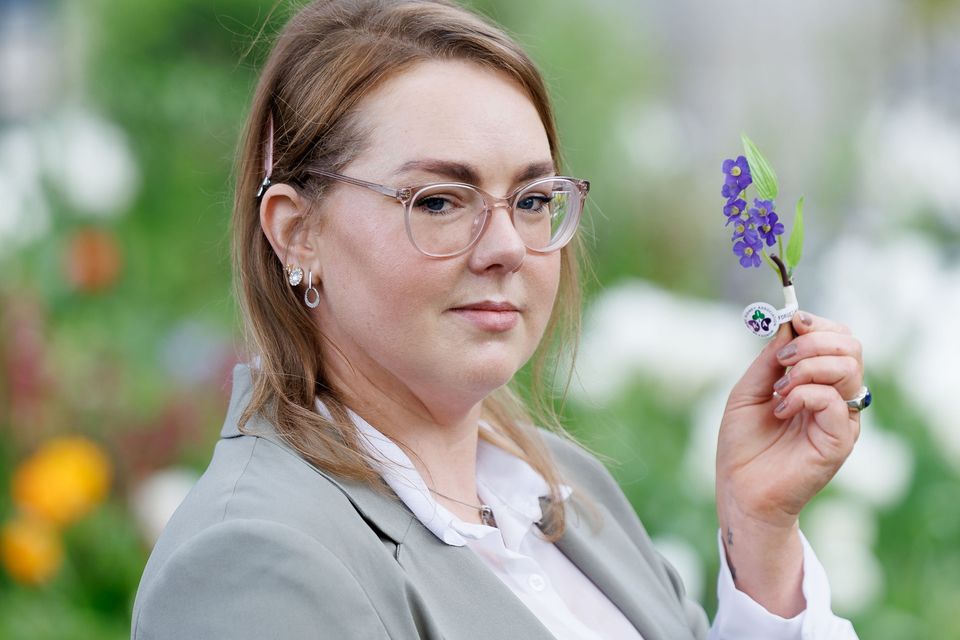Organ recipient with Kerry links shares her story – ‘A selfless decision to donate gave me a second chance’
Julie Egan who lived in Killarney shares her organ donation story.
Just over a year ago Julie Egan’s life changed forever and it is all thanks to the kindness of an organ donor who gave her a future – a future she will be forever grateful for.
Julie who grew up in Killarney underwent a simultaneous kidney and pancreas transplant at Vincent’s Hospital last year after 4 years of dialysis treatment and over two decades living with diabetes and daily insulin injections.
Her health had deteriorated so much that she had to move home to live with her family and was battling losing her eyesight along with kidney failure. Her only hope an organ donor.
Her ill-health began when she was just 11 years old just after she moved from New York to Killarney, when she was diagnosed with type one Diabetes.
"I was just eleven when my world was turned upside down. My life became a constant struggle. Hospitalisations due to complications with my diabetes plagued my youth, teenage, and early adulthood years. It was a very scary and stressful experience for me in early adolescence and I did not process it well. I suffered from anxiety and depression as a teenager. I developed a rebellious attitude and was very angry as I felt powerless that regardless of how hard I tried I was never going to get my diabetes under control and I had resigned to thinking that I was going to end up in a horrific state as my illness took a tighter grip on me,” she said in a special presentation during Organ Donor week.
“From there on my whole health started to crumble. I woke up one morning but could barely see, my eyesight was almost gone. It was such a shock and very frightening. I then went to get my eyes checked at Sligo University Hospital and my diagnosis was bleak. An unwanted consequence of Diabetes which affects some patients, I had developed retinopathy and Macular Edema which caused blurry vision as my eyesight began fail,” she said.
Her condition was to get worse and she even almost had complete loss of vision for six months. She ultimately underwent major eye surgery at the Mater Hospital in Dublin that saved her vision but Julie had more battles head.
“Now, I was not only battling diabetes but also the prospect of kidney failure. Dialysis became my lifeline, but it also felt like a burden, leaving me with little energy and frequent ICU visits. Even surviving COVID-19 was a challenge. I then contacted TB and endured rigorous testing, after which I was finally placed on the transplant list at St. Vincent’s University Hospital for a kidney and pancreas transplant,” explained Julie
“In Spring 2023, I received a call for a simultaneous kidney and pancreas transplant, which was a total success. Waking up, I felt like a weight had been lifted. No more insulin injections and the four years of dialysis sessions which I had to undergo three times a week, leaving close to 2,000 hours on a dialysis machine behind me. I could finally live, not just exist.
“The emotions overwhelmed me. Gratitude, relief, and disbelief flooded my heart. To think that someone's selfless act, their decision to donate organs, had given me a second chance at life. It's a feeling I struggle to put into words.
I owe my newfound life to my donor and their family, whose gift of life I cherish every day .. My future now holds hope, excitement, and immense gratitude. Organ donation transformed my life, and I'll forever advocate for its importance.”
Organ Donor Awareness Week 2024 took place this week (April 20-27) and is organised by the Irish Kidney Association (IKA) in association with the HSE’s Organ Donation Transplant Ireland (ODTI).
The IKA are asking the public to use Organ Donor Awareness Week as a prompt to have a family discussion about organ donation.
The signing of the Human Tissue Bill into law this marked a new step in the over 60 years of organ donation and transplantation in Ireland. With the planned introduction of altruistic donation and an opt-out register, we have an opportunity to engage the national population in an important conversation about organ donation, the IKA urged.













